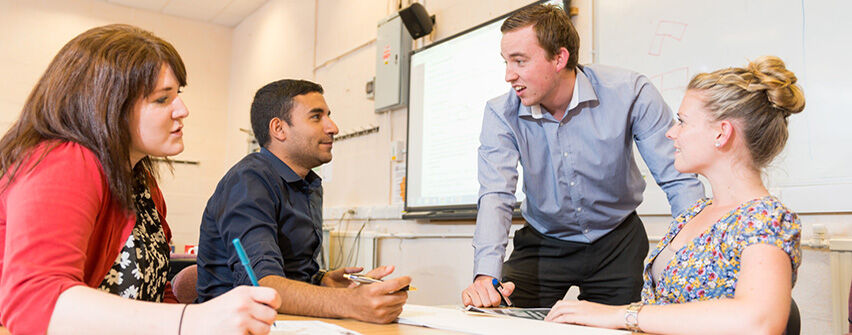Since I became module leader for the Critical Perspectives 2 (CP2) module on School of Education and Social Work’s Doctorate in Education I have always enjoyed the point in the year when we get to do the Saturday morning formatives. For me this always shows how far people have come on their doctoral journey during their first year of study.
CP2 is always characterised at the beginning by a sense of apprehension and sometimes confusion about what the point of the module is. These feelings are often compounded when we go through the module guide and everybody realises how open the assessment is as the various formats available encourage people to try different ways of articulating their ideas about methodology for the summative, for example in a podcast or a blog or through some visually creative format. This is of course is deliberate, as one of the main ideas behind CP2 was that it creates opportunities for shaking up and opening up people's thinking about education methodologies and the implications of different methodological approaches in their own education research. Not surprisingly perhaps, the freedom that CP2 offer often terrifies people, and yet, every year, by the time we get to the formatives, CP2ers come up with exciting and innovative ways of talking about critical educational methodologies.
First Step on the Road
The CP2 formatives requires students to prepare a 15 minute presentation for a small group of their peers and a member of the EdD teaching staff, followed by a 10 minute discussion between everyone present. Without fail, despite everybody's worries for weeks before, the CP2 formatives are always a great success. I think this is due to a number of reasons. Firstly, it gives everybody the chance to practically think through how they might approach the summative assignment, and to test their ideas with peers and the EdD teaching team. Feedback on the presentations, needless to say, is always supportive and encouraging and best of all from my point of view as the tutor, well-informed! Secondly, presenting ideas in front of an audience is the first step on the road that leads inevitably to the viva at the end of the doctoral journey. Thus it represents a valuable, and perhaps for many participants, the first chance to articulate some very complicated thoughts about education methodology when they may be not yet fully confident of their final direction of travel.
Ultimately, the uncertainty and sense of risk engendered by the formative is really the point of CP2. This is because its value lies in its ability to replicate the period, experienced in PhD study, when the candidate is exploring different ways of approaching methodology. When studying for a PhD, this can often be a lonely and bewildering experience. However, in the EdD this period of study and exploration is experienced as part of a group through CP2 readings and discussions over a number of weeks. It is in these classroom discussions that people get the opportunity to admit that they are finding many of the new ideas difficult to understand nor can they immediately see how they might apply them in their own research.
The Unknown
This move into the unknown, methodologically speaking, is inevitably painful, not least because it involves questioning often very entrenched assumptions and expectations about what educational research is and what it can do. Moreover, entering into writing about methodology for a doctorate can, for many people, be a profoundly deskilling experience. Not least because the terminology and theory underpinning critical methodologies is complex and often very dense at this level. However, becoming more familiar with new methodological terminology and language is simultaneously liberating and exhilarating as it provides ways to explore, understand and critically evaluate one’s community of practice and disciplinary field.
Over the course of the module it becomes clear that individuals are beginning to find their feet methodologically. By the time we get to the formatives it is clear to see that methodology has become a ‘live’ and interesting subject for the group rather than something to be feared or viewed with suspicion. On the day, often surprising themselves, participants talk confidently about a variety of complex and innovative methodological approaches. They carefully position themselves with regard to their chosen ontological orientations and epistemological traditions. Finally, they are able to present their research ideas and interests using a variety of aural and visual methods which challenge and excite their teachers and peers, and we all end up discussing these choices and decisions as a community of researchers.
In this way, this year, like every year so far, the CP2 formatives remind me that perseverance, bravery and support are the key to doctoral progress and ultimately success.





